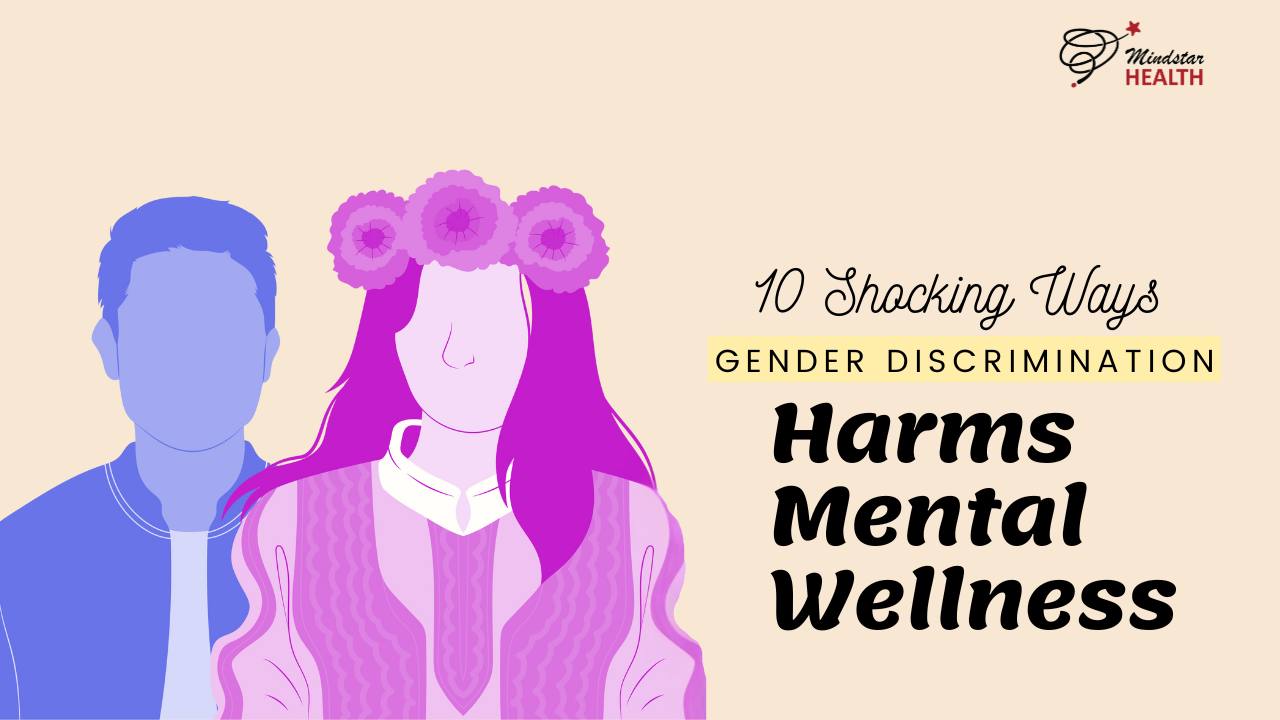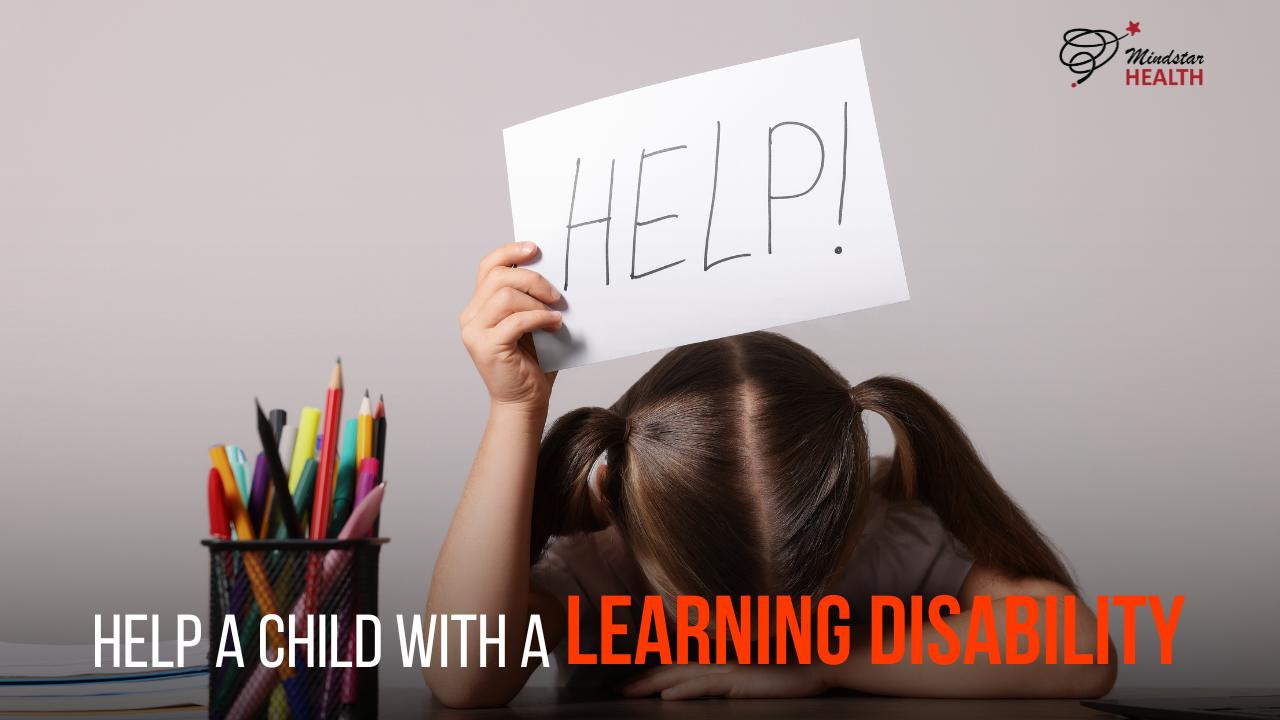Strengthen Your Emotional Health: A Guide to Breaking Codependent Patterns
Codependency affects millions of people, often going unrecognized until its impact becomes overwhelming. This article dives into emotional health, exploring the intricacies of relationship patterns, attachment styles, self-worth, and self-esteem. Here, we’ll discuss how understanding and addressing these aspects can help you break free from codependent behaviors, enhancing your self-identity, and ultimately improving your life.
How Emotional Health and Codependency are Connected
The connection between emotional health and codependency is significant. When our emotional health is compromised, it often manifests in our relationships. Codependency typically arises from unmet emotional needs, leading to behavior patterns rooted in seeking validation, attention, and love from others to compensate for feelings of inadequacy or insecurity. Recognizing this connection is the first step to developing healthier, more fulfilling relationships.
Understanding Codependency
Codependency generally involves one partner relying heavily on the other for emotional support, validation, or approval, often sacrificing their own needs and well-being. This can result in feeling “lost” in relationships, as one’s identity becomes entangled with the other person’s. Strengthening emotional health helps to establish personal boundaries, a critical component of breaking free from codependency.
How Relationship Patterns Impact Emotional Health
Relationship patterns shape how we connect, communicate, and cope within our interactions. These patterns often develop subconsciously, beginning in childhood and influencing adult relationships. When codependent tendencies take over, it often results from an attachment style that leans towards anxious or avoidant tendencies, rooted in a desire for validation.
Common Codependent Relationship Patterns
- People-Pleasing: Sacrificing personal needs to make others happy.
- Control Seeking: Attempting to “fix” others or situations to feel secure.
- Caretaking: Taking on the emotional burdens of others at your own expense.
- Avoidance: Fearing conflict, leading to suppression of personal feelings.
Understanding these patterns is essential to fostering emotional health and reshaping how you relate to others. Healthy relationships are rooted in mutual support and independence, rather than reliance on one person for emotional fulfillment.
Building Self-Worth as a Foundation for Emotional Health
Self-worth is a foundational component of emotional health. Without a solid sense of self-worth, individuals are more susceptible to codependent tendencies. Codependency often thrives on insecurity and a lack of confidence, which fuels the need for validation from others.
How to Strengthen Self-Worth
- Affirmations: Use positive affirmations to remind yourself of your value.
- Celebrate Small Wins: Acknowledge even minor achievements to boost confidence.
- Pursue Passions: Engage in activities that bring fulfillment and reinforce your sense of identity.
- Set Boundaries: Practicing boundary-setting is key to prioritizing your own needs.
Strengthening self-worth requires consistent effort and self-compassion, but it’s essential for breaking codependent patterns.
Emotional Health and the Importance of Attachment Styles
Attachment styles have a powerful influence on how we experience relationships and emotional health. These styles—secure, anxious, avoidant, and disorganized—often mirror how we were cared for in early childhood. They shape our relationships and often correlate with codependent tendencies.
How Different Attachment Styles Affect Codependency
- Secure: A healthy attachment style that fosters independence and mutual support.
- Anxious: This style often leads to clinginess and excessive emotional dependence.
- Avoidant: Involves an emotional detachment, often avoiding vulnerability.
- Disorganized: A chaotic blend of both anxious and avoidant tendencies, leading to inconsistency.
Understanding your attachment style can give you insight into relationship patterns, offering a pathway toward strengthening your emotional health.
Self-Care Strategies to Enhance Emotional Health and Avoid Codependenc
Self-care is crucial for maintaining emotional health and avoiding codependent patterns. Focusing on your own needs, feelings, and interests allows you to establish a stable foundation for healthier, balanced relationships.
Practical Self-Care Tips
- Physical Self-Care: Exercise regularly, eat well, and prioritize sleep.
- Mental Self-Care: Practice mindfulness, journaling, and engaging in activities that stimulate your mind.
- Emotional Self-Care: Process your emotions through therapy, creative outlets, or speaking with a supportive friend.
- Social Self-Care: Foster relationships that are positive and reciprocal, without becoming overly dependent on them for self-worth.
These self-care practices reinforce a sense of autonomy, helping prevent the tendencies that lead to codependency.
Emotional Health and Codependency in Family Dynamics
Family relationships often lay the groundwork for our emotional health and can deeply impact our susceptibility to codependency. Children who grow up in environments where emotional needs are neglected, criticized, or minimized may develop codependent tendencies as a way of seeking approval and connection. The process often begins as a child unconsciously learns to prioritize others’ needs over their own in a bid to receive love or attention. Recognizing these family patterns is crucial for anyone looking to improve emotional health and overcome codependent habits in adulthood.
Breaking Free from Family Patterns
- Awareness: Reflect on past family dynamics that may have influenced codependent behaviors. Consider any repeating cycles of needing to “rescue” family members emotionally or seeking validation through caretaking.
- Establish Boundaries: Set boundaries with family members to protect your emotional space, even if this is new and uncomfortable.
- Reframe Self-Worth: Realize that self-worth isn’t tied to family approval or fulfilling familial roles that disregard personal well-being.
Understanding family roots in codependency can be empowering, helping you establish a healthier emotional framework that breaks intergenerational cycles.
How Identity Issues Influence Emotional Health and Codependent Behavior
Our sense of identity—our understanding of who we are and what we value—is deeply connected to emotional health. When individuals have an unclear or fragile sense of identity, they may feel unanchored, leading them to derive their self-worth primarily from relationships. This need for external validation can lead to codependent tendencies, where identity becomes overly defined by another person’s needs, values, or opinions.
Strengthening Identity for Emotional Resilience
- Identify Personal Values: Reflect on your core values and interests. Cultivating interests and hobbies that are genuinely yours reinforces a sense of self that isn’t dependent on others.
- Set Personal Goals: Establishing and working toward personal goals gives a sense of purpose and direction that is self-fulfilling.
- Practice Self-Awareness: Regularly reflect on who you are and what you want out of life, independent of any relationships.
By solidifying your identity, you foster emotional health, creating a foundation that encourages relationships based on mutual support rather than emotional dependency.
The Impact of Self-Esteem on Emotional Health and Codependency
Self-esteem, the regard we hold for ourselves, is integral to emotional health. Individuals with high self-esteem tend to make healthier relationship choices, while those with lower self-esteem are often more susceptible to codependency. They may rely on others for affirmation or approval, feeling unworthy unless validated externally. This reliance fosters a cycle of dependence, undermining personal growth and autonomy.
Building Healthy Self-Esteem
- Challenge Negative Beliefs: Work to replace self-critical thoughts with supportive ones. Negative self-talk reinforces low self-esteem, which is linked to codependency.
- Practice Self-Compassion: Treat yourself with kindness, recognizing that everyone makes mistakes and has areas for growth.
- Develop a Growth Mindset: Embrace challenges as opportunities for growth rather than as reflections of inadequacy.
Raising self-esteem can be transformative, breaking the cycle of codependency by establishing internal validation that doesn’t depend on others.
Recognizing Emotional Triggers in Codependent Patterns
Understanding emotional triggers is essential for managing emotional health and breaking codependent cycles. Triggers are emotional responses often tied to past experiences and unresolved issues. For codependent individuals, certain situations—such as feeling ignored or rejected—can trigger a need to please or control others as a coping mechanism.
Identifying and Managing Triggers
- Notice Patterns: Identify situations or emotions that often lead you to act in a codependent manner. Journaling can help recognize patterns over time.
- Practice Emotional Regulation: When triggered, pause and use techniques like deep breathing, grounding, or positive self-talk to manage emotions without reverting to codependent behaviors.
- Seek Healthy Outlets: Redirect energy toward constructive outlets, such as exercise, creative hobbies, or spending time in nature.
Becoming aware of emotional triggers allows you to respond with self-awareness and resilience rather than reverting to codependent coping strategies.
Developing Assertive Communication to Support Emotional Health
Assertive communication is crucial for emotional health and can significantly reduce codependent behaviors. When individuals communicate assertively, they express their needs, thoughts, and boundaries in a respectful way, fostering mutual respect and understanding. Codependent individuals often struggle with assertiveness, either remaining silent to avoid conflict or over-explaining to gain acceptance.
Strategies for Assertive Communication
- Use “I” Statements: Express feelings in terms of your own experiences (e.g., “I feel” rather than “You make me feel”) to avoid blame and encourage open dialogue.
- Set Boundaries Calmly: Practice stating your needs clearly and confidently, without justifying or over-explaining.
- Listen Actively: Communication is a two-way street. Practice active listening by giving others your full attention without planning your response in advance.
Developing assertive communication strengthens emotional health, allowing for relationships where needs are openly expressed and respected.
Here’s an additional SEO-friendly expansion on the topic, focusing on fresh angles and specific strategies to enhance emotional health and address codependent tendencies:
Emotional Health as a Catalyst for Personal Growth Beyond Codependency
Emotional health is more than just feeling good; it’s a powerful catalyst for personal growth and transformation. When emotional health is prioritized, it nurtures self-awareness, emotional regulation, and resilience, all of which help break codependent patterns and allow for a deeper sense of independence and personal satisfaction. By enhancing emotional health, individuals can achieve greater personal growth, experiencing relationships as spaces of shared support rather than sources of validation.
Steps to Foster Personal Growth and Emotional Health
- Set Personal Development Goals: Define goals that align with your values, such as learning new skills or cultivating self-discipline. Achieving these goals builds confidence that is independent of external validation.
- Embrace Solitude: Regularly spending time alone allows you to understand and appreciate your own company, reducing the need to rely on others for fulfillment.
- Reflect on Emotional Reactions: Develop a habit of evaluating your emotional responses to different situations. This practice fosters self-awareness, reducing impulsive reactions and codependent tendencies.
By focusing on these areas of growth, you strengthen emotional health and shift towards self-sufficiency, empowering you to form relationships based on mutual support rather than dependency.
Emotional Health and the Power of Self-Awareness in Transforming Codependent Behaviors
Self-awareness is the cornerstone of emotional health. It’s the process of observing your thoughts, emotions, and behaviors without judgment, which is crucial for breaking codependent habits. When you’re aware of your patterns, you’re empowered to make conscious choices that align with your well-being rather than reacting automatically.
Practicing Self-Awareness for Improved Emotional Health
- Mindfulness Exercises: Engage in daily mindfulness exercises, such as mindful breathing or body scans, to develop a habit of checking in with yourself. This cultivates a deeper understanding of your emotions and needs.
- Emotion Journaling: Document your feelings and thoughts regularly to identify patterns, emotional triggers, and insights about what you truly value. Journaling creates a record of your emotional journey, offering insights into areas for growth.
- Seek Feedback: Ask trusted friends or a therapist for feedback about how you interact with others. This external perspective can reveal tendencies that may go unnoticed and provide guidance on areas for improvement.
Self-awareness allows you to recognize moments when codependent patterns arise, giving you the power to choose healthier, emotionally supportive actions instead.
Enhancing Emotional Health by Fostering Independence and Self-Reliance
Independence and self-reliance are essential components of emotional health that counterbalance codependent tendencies. Developing these qualities helps individuals understand their own abilities and limits, building a robust foundation for self-confidence and resilience. When people cultivate a sense of independence, they are less likely to seek validation or support from others in ways that are emotionally draining.
Strategies to Build Independence and Strengthen Emotional Health
- Develop Self-Sufficiency Skills: Engage in activities that help you rely on yourself, like managing finances, learning to cook, or developing new hobbies. These skills foster confidence and reduce dependency on others.
- Set and Respect Boundaries: Practice defining and maintaining boundaries in relationships, which encourages a balance between connection and individuality. This also prevents emotional over-reliance on others.
- Create a Balanced Routine: Establish routines that focus on personal goals and well-being. Having a structured, self-focused schedule reinforces the importance of your own priorities and diminishes codependent tendencies.
When independence and self-reliance are nurtured, individuals gain confidence in their ability to navigate life autonomously, leading to healthier, more balanced relationships.
Emotional Health Through Personal Empowerment: Building Resilience and Inner Strength
Personal empowerment is vital for emotional health, enabling individuals to take control of their life choices and experiences. By cultivating empowerment, people gain inner strength and resilience, which reduces the likelihood of relying on others for emotional fulfillment. Resilient people have the ability to adapt to life’s challenges, maintaining a strong sense of self regardless of external circumstances.
Techniques to Build Resilience and Emotional Health
- Challenge Negative Thought Patterns: When negative thoughts arise, question their validity and replace them with empowering affirmations. This rewires your mindset towards positivity and self-belief.
- Focus on Solution-Oriented Thinking: Instead of dwelling on problems, shift your focus toward actionable solutions. This empowers you to take charge of situations rather than feeling helpless or overly dependent on others.
- Practice Stress-Reduction Techniques: Engage in regular activities like yoga, meditation, or breathwork to manage stress. Reducing stress boosts resilience and emotional health, making it easier to handle life independently.
With personal empowerment, individuals can experience relationships without codependent habits, allowing for a sense of mutual support that respects individual autonomy.
Transformative Self-Care Practices for Emotional Health and Codependency Recovery
Self-care is more than just pampering; it’s an intentional practice that strengthens emotional health and helps individuals manage codependent tendencies. By consistently meeting their own needs, people learn that they can provide fulfillment, support, and comfort for themselves, reducing the compulsion to seek these externally.
Self-Care Habits to Reinforce Emotional Health
- Establish a Morning Routine: Begin each day with practices that nurture your mind and body, such as journaling, meditation, or light stretching. A grounding routine helps set a balanced, self-focused tone for the day.
- Prioritize Rest and Rejuvenation: Ensure adequate sleep and downtime. When you’re rested, you’re more resilient to emotional triggers and better equipped to handle life independently.
- Engage in Activities That Foster Joy: Regularly participate in hobbies and activities that bring you joy without needing anyone else’s involvement. Finding happiness in solitary activities reinforces self-sufficiency.
Transformative self-care practices help shift focus back to the self, promoting emotional health and building a foundation for healthier, non-codependent relationships.
Embracing Authenticity: A Pathway to Emotional Health Beyond Codependency
Authenticity is a powerful aspect of emotional health that reduces the need for external validation. When individuals feel comfortable being their true selves, they experience a deeper sense of satisfaction and confidence. This authenticity nurtures emotional resilience and encourages relationships that are built on genuine connection rather than dependency.
Practicing Authenticity to Support Emotional Health
- Acknowledge True Feelings: Honor your emotions without judgment. When you allow yourself to feel and process your emotions, you gain insight into your true desires and boundaries.
- Express Personal Truths: Communicate your opinions, needs, and boundaries openly, even if they differ from those of others. This strengthens self-identity and reduces the urge to compromise for the sake of approval.
- Embrace Vulnerability: Letting others see the real you, imperfections and all, fosters meaningful connections. When you accept yourself, you empower others to respect you authentically as well.
Authenticity allows people to cultivate relationships based on mutual respect and shared understanding, fostering emotional health and diminishing the need for codependent behaviors.
The Journey to Emotional Health and Freedom from Codependency
Breaking free from codependency is a journey that requires consistent self-work, but the rewards are profound. By investing in emotional health, fostering self-awareness, and building resilience, people can create lives filled with balanced, authentic relationships. Moving beyond codependent patterns leads to a sense of freedom, allowing individuals to experience love and connection without losing themselves in the process.
Reclaiming Self-Worth as a Key to Emotional Health and Independence
Reclaiming self-worth is transformative for emotional health and essential to overcoming codependency. For many, codependent behaviors stem from a history of seeking validation externally, often at the expense of personal identity and self-respect. When self-worth is low, people tend to prioritize others’ needs over their own, compromising their own well-being to avoid conflict or rejection. By reclaiming self-worth, individuals foster a sense of inner value that reduces their need to rely on others for emotional stability.
Techniques to Build Lasting Self-Worth
- Create Positive Affirmations: Develop affirmations that reinforce your unique qualities and strengths. Repeating these regularly can gradually shift negative self-beliefs.
- Celebrate Small Wins: Recognize and celebrate your achievements, even small ones, as these accomplishments reinforce self-worth and build confidence.
- Surround Yourself with Positivity: Engage with people and environments that uplift and inspire you, encouraging growth and self-respect.
By focusing on self-worth, individuals develop a secure foundation for emotional health, enabling them to build relationships that are balanced and supportive. This journey empowers individuals to experience genuine connection without compromising their own identity or well-being. Breaking free from codependency leads to a fulfilling, autonomous life, where relationships enrich rather than define personal happiness.
FAQs on Emotional Health and Codependency
Q1: What are the signs of codependency in a relationship?
A: Codependency signs include people-pleasing, lack of personal boundaries, emotional dependence, and a sense of identity being tied to the relationship.
Q2: Can improving self-esteem help with emotional health?
A: Yes, self-esteem is closely linked to emotional health. When you value yourself, you’re less likely to rely on others for validation, reducing codependent patterns.
Q3: How can I identify my attachment style?
A: Taking an attachment style quiz or seeking guidance from a therapist can provide insight into your attachment tendencies, which may influence your relationships.
Q4: Is self-care selfish in relationships?
A: No, self-care is essential for healthy relationships. When you take care of your emotional needs, you bring a stronger, more balanced version of yourself to the relationship.
Q5: Can I break codependent habits on my own?
A: While self-help techniques can be beneficial, working with a therapist is often helpful for addressing deeply ingrained codependent patterns.
Q6: What role does self-worth play in codependency?
A: Low self-worth often drives codependent behaviors. By building self-worth, you cultivate a sense of value independent of external validation.
Q7: Are there any tests to assess codependency?
A: Yes, several codependent tests or quizzes are available online and through mental health professionals, which can provide insight into your behavior patterns.






















Leave a Reply
You must be logged in to post a comment.